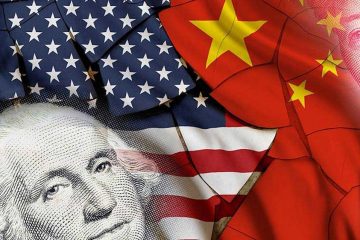If wages are to rise, workers need more bargaining power

“IT’S just not going to happen,” said Troy Taylor, the boss of a Coca Cola bottling company, when asked at a recent Federal Reserve event whether he foresaw broad-based wage gains. His remarks (unlike the fizzy drinks he sells) were unsweetened. But experience suggests he may have a point. In most rich countries, real pay has grown by at most 1% per year, on average, since 2000. For low-wage workers the stagnation has been more severe and prolonged: between 1979 and 2016, pay adjusted for inflation for the bottom fifth of American earners barely rose at all. Politicians are scrambling for scapegoats and solutions. But addressing stagnant wages requires a better understanding of the relationship between pay, productivity and power.
In the simplest economic models, productivity is almost all that matters. Workers are paid exactly and precisely in accordance with their contribution to a firm’s output. Were they paid less, rival employers could profit by luring them away with higher pay, and wages would be bid up until they came into line with productivity. Firms paying more than workers contribute would be losing out for no reason.
This sort of view suggests a few ways to improve workers’ lot. Governments could pursue policies that would help workers move from low-productivity jobs to high-productivity ones, for instance. That might mean investing in education and training, or removing obstacles to relocation or moving from one employer to another, such as high housing costs in places with productive companies, or laws that enforce non-compete clauses in job contracts. When productivity-boosting strategies are not enough to do the trick, a government’s best option is to top up low pay as efficiently as possible. Economists favour wage subsidies, such as Milton Friedman’s proposed negative income tax, which influenced the design of America’s earned-income tax credit. Such subsidies encourage people to stay in work in order to qualify, and do not make workers more expensive and thus discourage hiring. They are also simple to administer.
But it has long been clear that wage-setting is more complicated than the simplest models allow. Growth in pay is linked to growth in productivity, as Anna Stansbury and Lawrence Summers noted in a paper last year. But other influences seem to depress wages. Thus labour productivity rose by 75% in America from 1973 to 2016, while average pay rose by less than 50% and median pay by just over 10%. A direct link between pay and productivity would imply that raising the minimum wage would automatically cut employment, as those workers who had been paid according to their contributions suddenly became overpaid (and, shortly thereafter, unemployed). But no such clear, negative relationship shows up in the data.
The reason, economists reckon, is power. New hires generate a surplus, reflecting the fact that both worker and firm expect to gain from the transaction. Wage bargaining is a negotiation over how to split this surplus. If firms have the upper hand, because a new job is harder to find than a new worker, employers capture most of the surplus, creating a gap between the value created by workers and what they are paid. A rise in the minimum wage could then boost pay without reducing employment by redistributing some of this surplus, leaving a firm with a smaller gain than before, but a gain nonetheless.
There is good reason to think that power imbalances play a big part in the rich world’s wage stagnation. Product markets have become more concentrated, meaning that fewer firms account for a larger share of output. That increases companies’ power in labour markets, since workers are less able to find alternative employment or to pit rival employers against each other in a bidding war. In a recent paper Suresh Naidu, Eric Posner and Glen Weyl estimate that this rise in firms’ power may reduce labour’s share of national income by as much as a fifth. They argue that one way to help struggling workers might be to use antitrust policies to make product markets less concentrated and more competitive.
A complementary approach would be to increase workers’ power. Historically, this has been most effectively done by bringing more workers into unions. Across advanced economies, wage inequality tends to rise as the share of workers who are members of unions declines. A new paper examining detailed, historical data from America makes the point especially well. Henry Farber, Daniel Herbst, Ilyana Kuziemko and Mr Naidu find that the premium earned by union members in America has held remarkably constant during the post-war period. But in the 1950s and 1960s the expansion of unions brought in less-skilled workers, squeezing the wage distribution and shrinking inequality. Unions are not the only way to boost worker power. More radical ideas like a universal basic income—a welfare payment made to everyone regardless of work status—or a jobs guarantee, which extends the right to a government job paying a decent wage to everyone, would shift power to workers and force firms to work harder to retain employees.
Strong bad
Economists are unlikely to cheer such proposals. A broad jobs guarantee would transform society in unpredictable and costly ways. And unions look like monopoly sellers of labour—cartels, intended to leech rents from society as a whole. But the powerful unions of the post-war decades did not stop productivity growing much faster than advanced economies have since managed. And it was during that period that growth in real pay most closely tracked growth in labour productivity, as the simplest economic models reckon it should. More empowered workers would no doubt unnerve bosses. But a world in which pay rises are unimaginable is far scarier.
This article appeared in the Finance and economics section of the print edition under the headline “Power is money”


